You’ve got a lot of things on your plate when it comes to running your business. From day-to-day tasks and product creation to sales and marketing, you don’t have time to sit down and monitor every single mention, comment, or share on your social media accounts—and you especially don’t have time to try and discover when and where your business may be mentioned without the use of your profile handles, let alone keep up on industry and influencer conversations.
But you know that staying involved in social media is incredibly important in today’s technological and digital age. So if you’re torn between keeping your eyes glued to your notifications and actually creating products worth mentioning, don’t worry—you’re not in a catch-22. Just like there are tools to monitor your social media analytics, there are tools to help you listen to social media that impacts you, your business, and industry.
Recap: Social Media Listening Is Different Than Monitoring
Here’s a quick reminder: social media listening differs from social media monitoring in key ways. When you monitor social media activity, you’re gathering and analyzing data, like mentions and engagement. But social media listening takes it a step further—and wider. Social media listening is keeping your ears (and eyes) open for online conversations your current or potential customers are having by tracking topics, themes, keywords, and hashtags relevant to your business and industry. And it’s important to listen because you’ll gain insight into what your audience needs and wants, which helps you make a more productive marketing plan, create better products to fulfill those needs and wants, provide top-notch customer service, and repair any negative sentiment you might experience (and thank the people giving positive sentiment!).
But, as stated above, you can’t always have your attention focused on your social media. That’s why you need a backup team that listens for you and lets you know when there are notifications that will really impact your business. And we know you’re busy, so we’ve done some research for you so you can make informed decisions on the best tools for your business.
Candidates for Your Social Listening Team
Mention provides social media monitoring; brand tracking; Web monitoring; and Instagram, Facebook, Twitter, and YouTube tracking services, giving you a comprehensive look whenever there are conversations about your brand. It also keeps track of when your company is mentioned (clever name, right?) on blogs, forums, and review sites. Mention offers real-time monitoring, competitive analysis, custom insights, automated reports, and helps you find influencers in your industry. Big-name brands like Microsoft, Lamborghini, and Airbnb use Mention, so its reputation is stellar. It’s a paid service—$29 a month for the basic solo—but you can sign up for a free trial to find out if Mention is a good fit for you.
Keyhole allows you to track keywords and hashtags pertaining to your industry, your accounts, and any news, blogs, and forums you might be mentioned in or that are talking about your industry, all in real-time. You can also track and measure your social campaigns, monitor your brand and competitors, get insights on your social and digital events, measure how your influencers are doing, and conduct market research. Keyhole also services some big names, like Google, Spotify, and L’Oreal. While Keyhole’s prices are higher than Mention’s ($179 a month to start on the yearly plan), the ability to track keywords and hashtags allows you to get a step ahead of the authority game by notifying you when conversations start. That way you can quickly jump in and prove you’re a thought leader.
Brandwatch states it is the social listening tool that can tell you about your customers, and it backs that claim by serving mega businesses like Walmart, PepsiCo, and American Airlines. It’s also Twitter’s official partner. Brandwatch provides you with the tools needed to search the Web for reviews, articles, comments, and conversations. It has more than fifty filters you can use to pinpoint certain data, such as social sentiment: Are you looking for praises to post on your site as customer testimonials, or are you looking for negative comments so you can spearhead major issues and provide faster customer service? It also allows you to personalize your search rules so you can segment your data. What’s more, you can personalize your sentiment data with keywords applicable to your industry. For example, the case study on the site shows the negative sentiment for the word delayed in regard to the airline industry. Its prices aren’t listed on its site, but you can complete a request form to book a free demo. One more note on Brandwatch: it just merged with Crimson Hexagon, a platform that provides tools needed for audience, brand, campaign, and industry and trend analysis.
Klear is specifically a marketing software that helps you find influencers in any category across Instagram, Twitter, YouTube, and blogs. Klear also gives you insight into social users so you can be sure you’re targeting, following, and communicating with the right people. Additionally, you’ll get social-media-monitoring performance reports to track your mentions, engagements, reach, and ROI. Its big-time clients include Coca-Cola, JP Morgan Chase, and Adidas. Like Brandwatch, its prices aren’t listed on its site, but you can sign up for a demo (which is under their pricing link).
Sprout Social is not only a content publishing and curating platform, it also provides you with the tools necessary for social media monitoring so you can monitor mentions, engagements, as well as for social media listening so you can monitor hashtags, keywords, and social profiles. It also provides Twitter-specific listener dashboards and reports, real-time brand monitoring, and data for listening to conversations, finding emerging trends, and identifying influencers. And it, too, has power players in the business industry: Ticketmaster, NBCUniversal, and Evernote, to name a few. The premium plans start at $99 a month, but Sprout also offers a free trial.
Keep in mind that one tool might not fit all of your needs, so it’s best to conduct your own additional research to determine what will work best for your company. Each of the platforms we’ve looked at has an established and trusted reputation, but you’ll need to decide which one fits your business model and goals. And now it’s your turn: How do you listen socially? Is there a tool you’d recommend to our readers? Let us know in the comments below!













Add a Comment